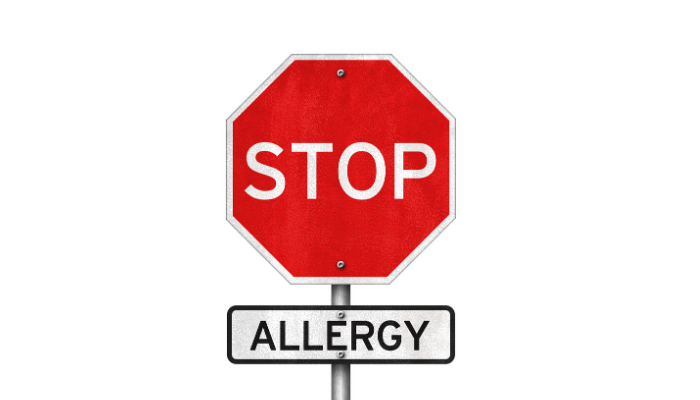
Did you know that in the UK around 1 in 4 of us will suffer from some form of allergy during our lifetime – that’s a lot of us! For those who have to live with an allergy, it can be a nuisance, but symptoms are mild and can be largely kept under control. For others it can be very frightening and, in some cases, debilitating whilst restricting lifestyle and a burden to live with.
Substances that cause allergic reactions are called allergens and adults can develop an allergy to something at any time even though they were not previously allergic to it.
Common allergens
- grass and tree pollen
- dust mites
- mould – these release small particles into the air that you can breathe in
- household chemicals – including those in detergents and hair dyes
- animal dander, tiny flakes of skin or hair
- food – particularly nuts, fruit, shellfish, eggs and cows’ milk
- insect bites and stings
- medicines
- latex
Symptoms of an allergic reaction
An allergic reaction usually occurs quickly after exposure to an allergen. The symptoms can include:
- sneezing
- a runny or blocked nose
- red, itchy, watery eyes
- wheezing and coughing
- a red, itchy rash
- worsening of asthma or eczema symptoms
- a severe reaction called anaphylaxis or anaphylactic shock
Most allergy sufferers know how to avoid their triggers when at home. But at work this is much more difficult because they have less control of the location of their workstation, the ventilation system, the humidity and temperature of the environment they work in and in some cases the materials used to do their job. It is very important to be more aware of allergy triggers around them at work.
A 2012 study by Allergy UK looked at the office environment and how it affected workers, particularly those with an allergy. Many said they had had an allergic reaction in the workplace. These included runny or block nose, itchy, watery or other eye conditions, dry or tickly throats, breathing difficulties, tiredness, headaches and skin irritations.
According to Allergy UK the key allergens found in an office are dust mites, pollens, and moulds. Being trapped in office buildings, as well as in carpeted floors and cluttered desks, these allergens are very common but also invisible.
Tips to reduce allergens in the workplace
- Daily cleaning of desks and floors, hoovering of carpets along with periodic window cleaning and deep cleaning. This will reduce the amount dust, mould and pollens.
- Regular declutter of desks, shelves and storage units to reduce the risk of dust or other allergens.
- Do you have plants in the workplace? Make sure they are non-flowering and keep them regularly watered. Remember to turn over or remove the topsoil so mould doesn’t have a chance to grow.
- Have a separate cloakroom or cupboard for storing coats and outerwear. You will be surprised at how much dust and pet hair can be present on them!
- Good ventilation with air conditioning in the warmer months to avoid having to open windows when there is a high pollen count.
Cleaning Assurance can help you achieve some of the solutions above. We also believe there are many other benefits to be gained from the services we provide. Here’s how you can benefit:
- We take care of the entire management of the service
- A client care helpdesk in addition to Area Management
- Outstanding, fully trained and reference checked operatives
- Competitive prices to meet your budget with open and transparent quotes.
- Tailored operating procedures to meet the needs of your site
Are you unhappy with your current cleaning provider or you are coming to the end of a contract? Do you wish to test the market for a reputable cleaning contractor? If so, we would be pleased to discuss your requirements. Please call us on 0844 247 9294 or email info@cleaningassurance.com. You can also contact us or make an appointment via our website.